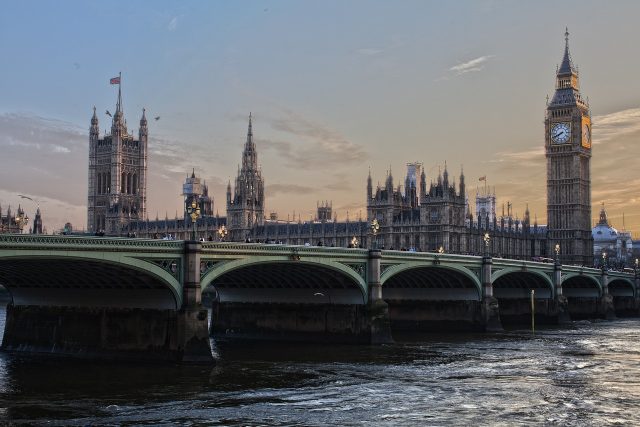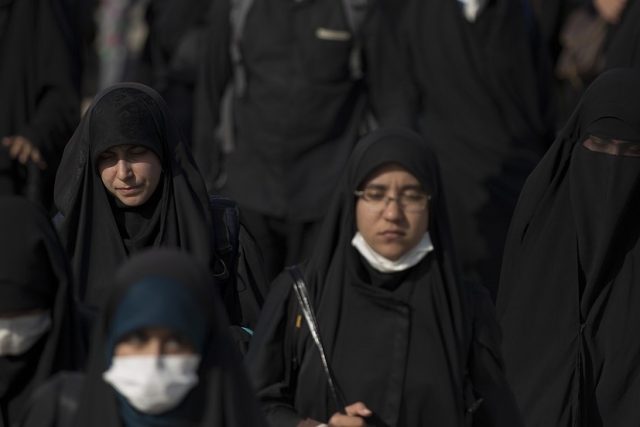A recent report published by two human rights non-governmental organizations (NGOs), REDRESS and the Clooney Foundation, found, “The UK has deviated from its historical commitment to international justice.” The report went on to argue that the UK should reform its existing laws to allow for greater universal jurisdiction, clearing a path to bring more international human rights violations claims in the UK.Last week’s report highlights the multitude of legal, practical and political hurdles that have hindered the prosecution of international crimes in UK courts. It also proposes a series of reforms aimed at addressing these challenges and enabling more successful cases against individuals suspected of the most severe international crimes—including war crimes, crimes against humanity, and genocide.Writing further to the report, directors of the Clooney Foundation and REDRESS, respectively, Amal Clooney and Rupert Skilbeck, emphasized the UK’s failure to hold war criminals to account. They explained that, under UK law, the principle of universal jurisdiction grants the courts of any country the authority to conduct trials for certain offenses, including genocide, crimes against humanity and war crimes, regardless of where they were committed. However, a combination of legal and practical obstacles has resulted in only three individuals ever being convicted of such crimes in the UK. The most recent conviction took place almost two decades ago.On the practical challenges the UK faces, the report states that investigations into international crimes in the UK traditionally start after a perpetrator is identified and present within the country. However, this approach can result in limited time to gather sufficient evidence before charges can be filed, as investigators have to wait for the suspect to enter the UK. The report also found that UK investigators face challenges in collecting evidence from foreign jurisdictions, particularly in conflict-affected areas. Cooperation and support from NGOs and survivors are crucial in obtaining evidence.The report also found that the UK lacks sufficient mechanisms for international cooperation in investigations. There is no specific international treaty on crimes against humanity—although this is currently being debated—and the UK no longer has access to the Schengen Information System, which alerts EU countries about individuals and objects entering their territories. Furthermore, the UK is no longer a member of Eurojust and Europol, although it remains an observer of the EU Genocide Network. Although the UK has over forty bilateral mutual legal assistance (MLA) treaties, there is still ambiguity regarding the extent of their obligations under those treaties.Practically the report said the UK should investigate suspects likely travel to the UK, even if travel is not imminent. The report further found that the the UK should sign and ratify the Ljubljana-Hague treaty and take a leading role in advancing the Crimes Against Humanity Treaty. The report also recommended amending the International Criminal Court Act (ICCA) in the UK to broaden jurisdiction. This would ensure that UK courts have jurisdiction over all crimes covered by the Rome Statute from at least 1991. The report also suggested specifying which crimes can be prosecuted under customary international law prior to this date.To address command and superior responsibility for international crimes, the report suggested amending relevant laws such as the Geneva Conventions Act 1957 and the Criminal Justice Act 1988. These amendments would explicitly recognize command and superior responsibility for crimes including grave breaches of the Geneva Conventions and torture committed by subordinates.Further, the report made four recommendations that the UK standardize its approach across international crimes by allowing the prosecution of any suspect present in the UK. The UK should also consider removing the presence requirement for all international crimes, the report suggested, aligning with countries like Sweden and Germany.In addition to universal jurisdiction, the UK also has an obligation under international law to either prosecute or extradite individuals suspected of war crimes or torture.This comes as Brendan O’Hara, a member of the UK’s Parliament, introduced the Universal Jurisdiction (Extension) Bill earlier this year, which “would tighten existing legislation on how we bring to justice those responsible for the world’s most heinous crimes.” The proposed bill suggests granting legal systems throughout the UK the authority to exercise jurisdiction over individuals suspected of serious international crimes, irrespective of the location where the crimes occurred or the nationality or location of the perpetrators or victims. In other words, if the proposed legislation passed, the UK would be able to pursue prosecutions without the requirement of any specific connection between the accused person or the victim and the UK. This is a concept known as universal jurisdiction.




The Most Read
Сryptocurrencies
Bitcoin and Altcoins Trading Near Make-or-Break Levels
Financial crimes
Thieves targeted crypto execs and threatened their families in wide-ranging scheme
Financial crimes
Visa Warning: Hackers Ramp Up Card Stealing Attacks At Gas Stations
News
Capitalism is having an identity crisis – but it is still the best system
Uncategorized
The 73-year-old Vietnamese refugee is responsible for bringing Sriracha to American consumers
Uncategorized
Electric Truckmaker Rivian, Backed By Amazon, Ford, Raises Whopping $1.3 Billion